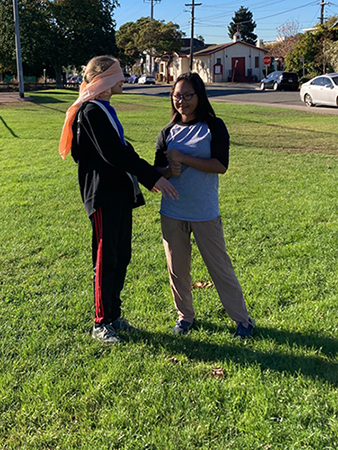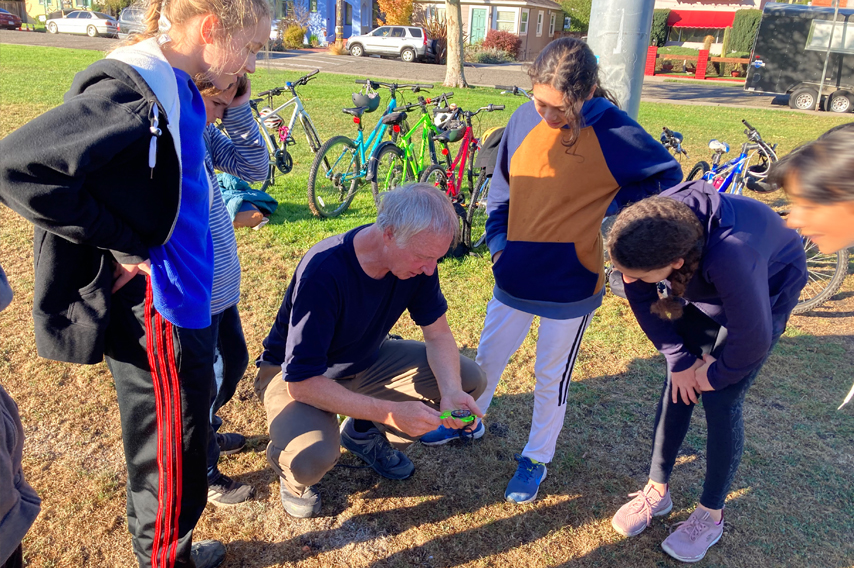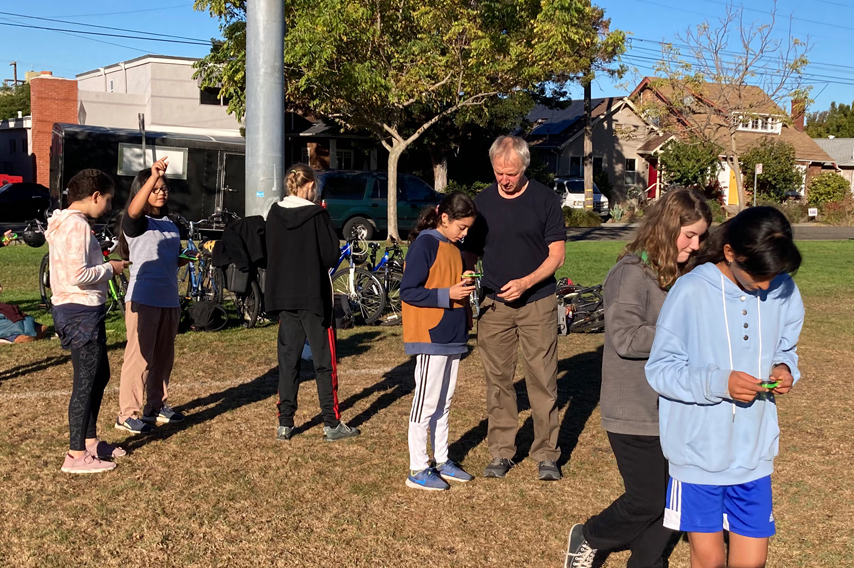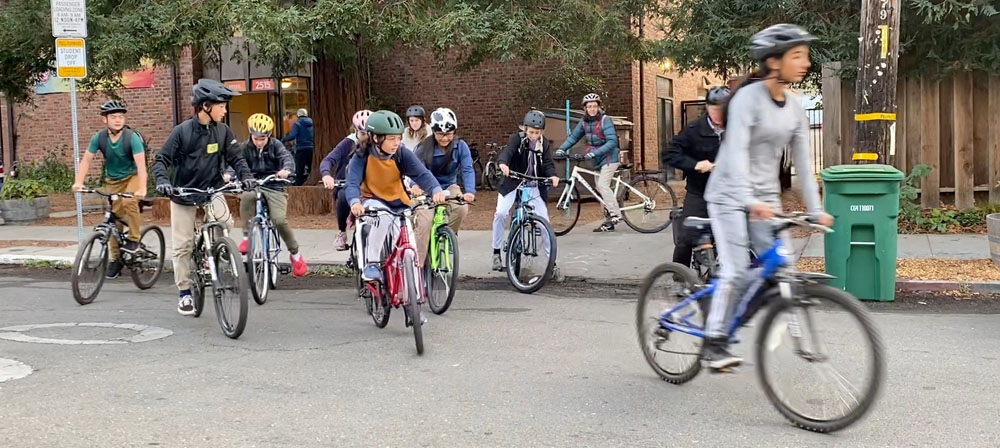Why Teach a Bike Repair Class to the 7th Grade?
||| During my summer training to prepare for 7th grade, physics teacher Paolo Carini [of San Francisco Waldorf High School] shared how important it is for middle school and high school students to understand how the mechanisms and technologies of everyday life work. This can be taken up in connection to the study of mechanics in 7th grade physics.
In thinking about how to teach mechanics to the 7th grade, the idea of doing a bike repair class made a lot of sense. Students can discover mechanical principles through taking their bicycle apart and learning to put it back together. In the process, they gain problem solving skills and confidence. As they take care of their bicycles, their bicycle works for them and gives them more independence, something for which adolescents are hungry.
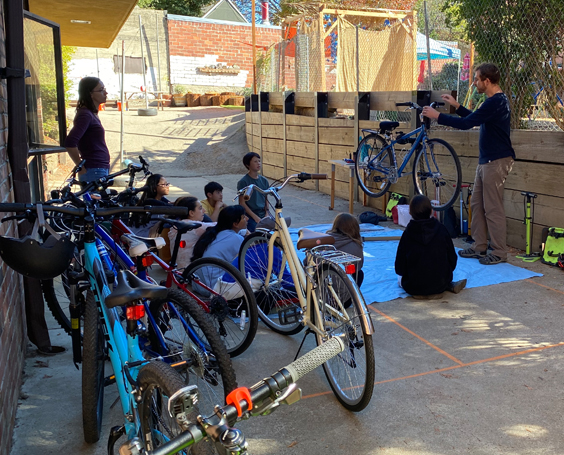
Offering this class also ties into the 7th grade geography and history curriculum, where we study wayfinding, navigation, and exploration. This week, we’ll be heading out on a series of increasingly difficult bicycle trips, mapping our route and navigating the way to our destinations. These trips will be led by our math teacher, as navigation involves the mathematics of calculating our location in time and space. As we explore our local geography, it will come in handy to know how to deal with any bicycle issues that may arise.
This is the first time that our school is offering this class, but understanding how things work is a part of the entire arc of Waldorf Education. It starts in early childhood, where we give the child space to wonder at the world. Open-ended toys such as pine cones and rocks allow children to wonder what things are for, how they might work, and to play in freedom without the items dictating their purpose. As children grow older, they gradually awaken to their environment. In the preteen and teen years, the sense of wonder cultivated in early childhood can be used to approach everyday technology. The middle schooler comes to explore the world through their growing capacity to ask questions and think independently.
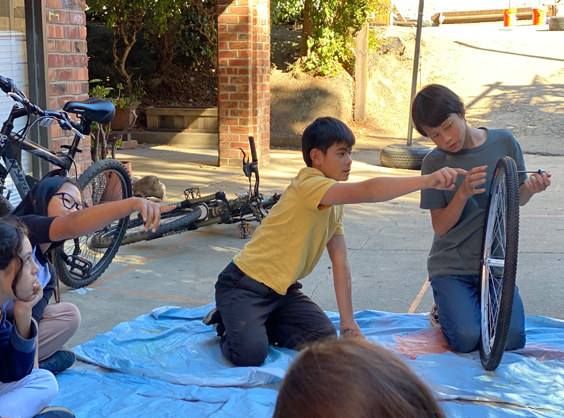
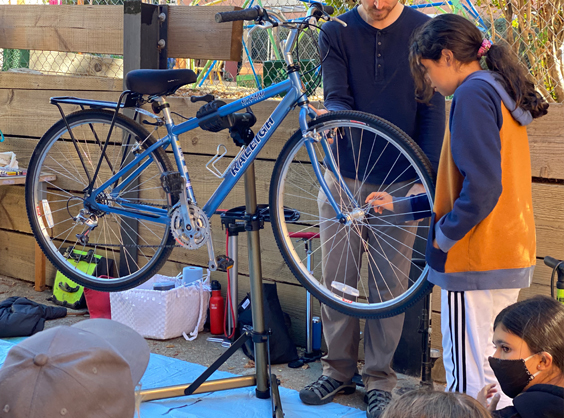
When actively inquiring to find answers rather than passively consuming information becomes the approach to education, not knowing is met with energy and enthusiasm to find out. These discernment skills are valuable. As young people become more aware of the world around them, they can think more critically about the way, for instance, advertising markets to them. They can be more than a passive consumer of information, of education, and can think for themselves, “How does my phone work?” or, “Why is this service free?”
We live in a world where it is not necessary to know how the technologies we use work, but we become reliant upon them anyway. Rudolf Steiner spoke about this very thing, at the time when the steam engine was a new technology. He pointed out that the horsepower in an engine allows the human being to do less work, but in a way the machine begins to have power over us because we rely on it without understanding it.
Knowing how things work provides a true sense of confidence and instills a greater willingness to try to figure things out, a belief that things in the world are figure-out-able. Imagine what a difference there is between the worldview of someone who understands the way the technologies around them work or has a curiosity to find out, as compared to someone who has no idea how things work nor the interest to find out.
There are many ways to learn; for example: reading a textbook about mechanics, hearing a teacher lecture about the principles of mechanics, or playing with a series of pulleys in the classroom which are not really serving any practical purpose. Consider how different it is to interact with a bicycle or a wheelbarrow, a machine that allows you to see the real-world applications of the concepts you are learning about. So much more is gained by touching and manipulating the machines themselves.
There is great wisdom in nature if we just observe how a plant is growing or what colors the sky takes on as the sun sets. It is the same with an object like a bicycle or a computer. Take it apart and then try and put it back together. There is so much we can learn if we only take the time to pay attention. We all have the capacity to learn the way things work if we choose to spend the time to engage with them.
